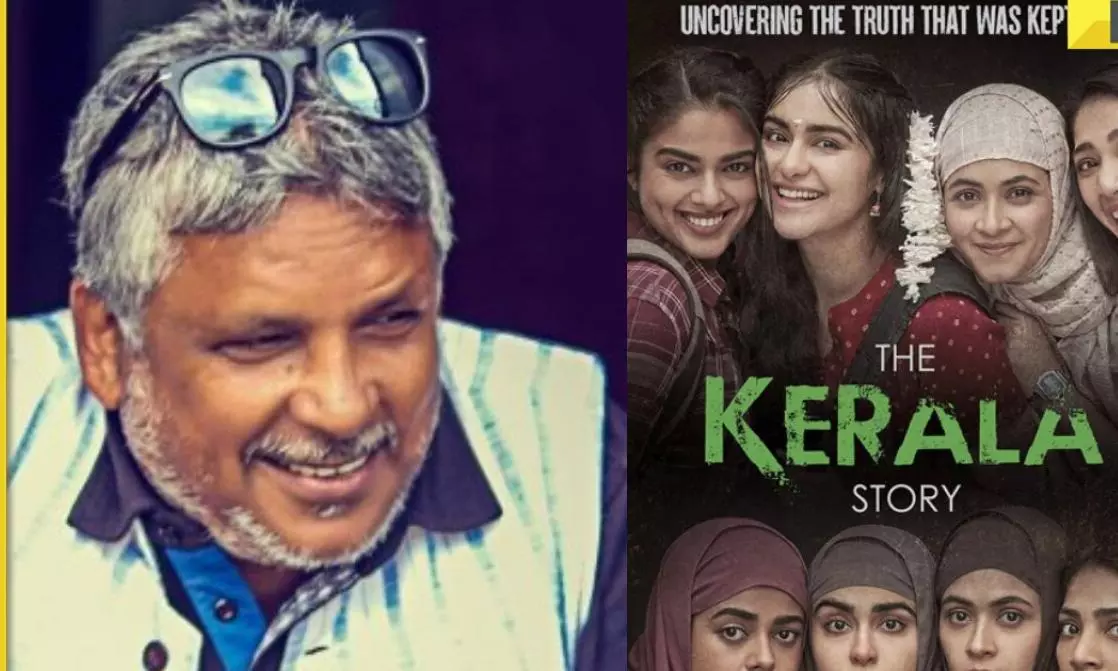
'The Kerala Story’ director says there is two Kerala; one is seen in postcards, other is a terror hub
text_fieldsMumbai: The attempt to portray Kerala in a negative light by Sudipto Sen, the director of the controversial film 'The Kerala Story,' continued with his new claim that the northern part of the state, comprising Malappuram, Kasaragod, and Kozhikode, which has a significant Muslim population, is a terror hub.
Despite facing backlash over his exaggerated and dramatic narrative of non-Muslim women’s conversion to Islam with the dubious intention by the Muslim men to take them to Syria to join ISIS, he urged the journalist who confronted him with the numbers he claimed in his controversial film to work on the ground in the said region to discover the truth.
Speaking to the press on Wednesday, May 17, Sen responded to a journalist's inquiry about the film's false assertion of 32,000 women being forcibly converted to Islam and recruited by ISIS.
In response, Sen argued that there are two distinct Keralas: one is the idyllic postcard version known for its backwaters, scenic landscapes, Kalaripayattu, dance, martial arts, and elephants—Kerala the world is familiar with. The other Kerala is the northern part comprising Malappuram, Kasaragod, and Kozhikode, which connects with southern Karnataka, including Mangaluru. Sen claimed this region serves as a hub for a terror network.
Sen went on to claim that despite Kerala's leading literacy rate in the country and its commendable performance on human development indices, including women's and children's health, various issues are taking place "under the carpet." Instead of dismissing or ridiculing the film, Sen challenged journalists to report from Kasaragod and Kozhikode to discover the truth.
"The Kerala Story" has faced criticism for spreading propaganda and distorting the number of women radicalized from Kerala. Public records indicate that only six women from Kerala joined ISIS, with just one woman being Hindu. However, the film deliberately muddles these cases with religious conversions for other reasons. Kerala's Chief Minister, Pinarayi Vijayan, labelled the film a product of the "Sangh's lie factory" and accused it of attempting to humiliate the state before a global audience.
Vijayan further asserted that such propaganda films, which marginalize Muslims, should be viewed within the context of the Sangh Parivar's political endeavours to gain an advantage in Kerala.
On May 8, three days after its release, "The Kerala Story" was banned in West Bengal. Chief Minister Mamata Banerjee justified the ban, citing the need to prevent incidents of hatred and violence and maintain peace within the state. The West Bengal government, defending the ban before the Supreme Court, argued that the film was based on manipulated facts and contained multiple scenes with hate speech, which could disrupt communal harmony. They contended that permitting the film's exhibition would risk breaching the peace, contrary to the interests of justice.























